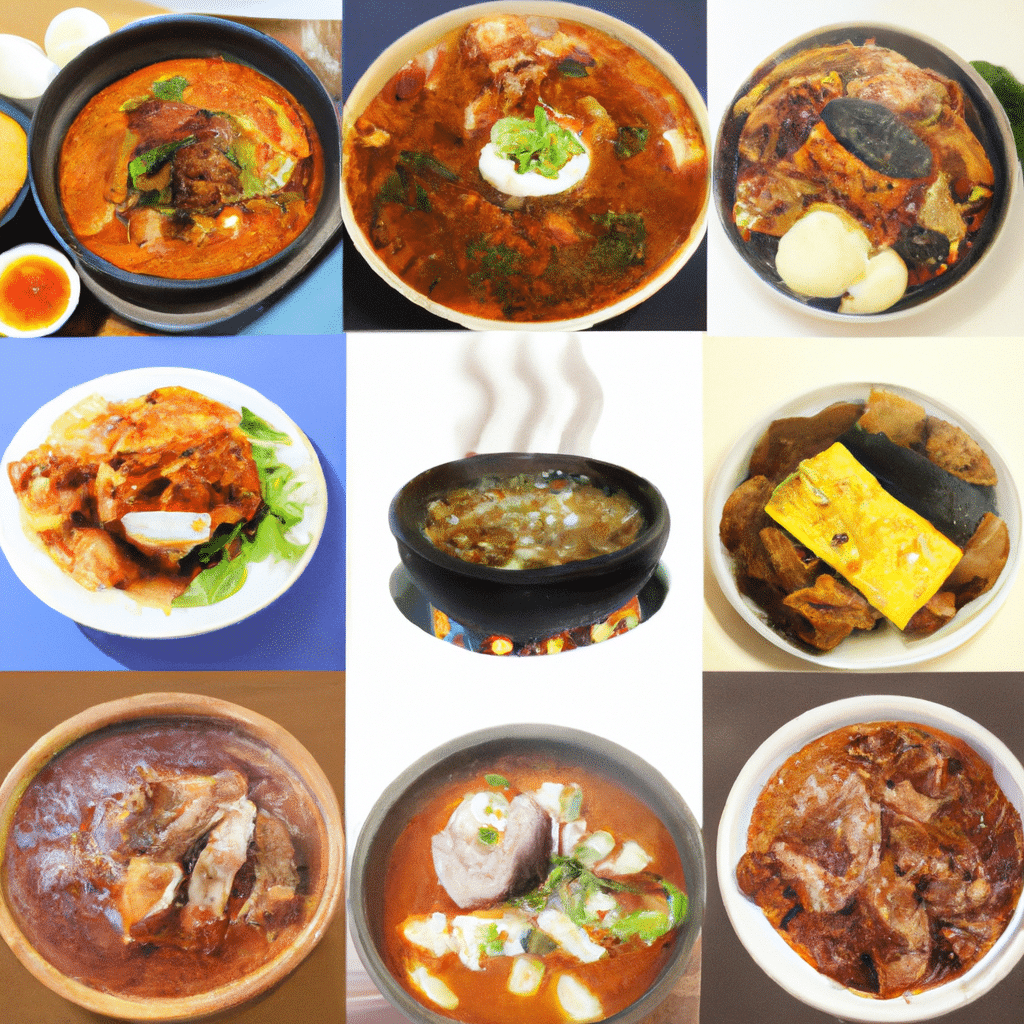Welcome to our comprehensive guide to the hidden secrets of Jeju Island’s unique cuisine. Jeju Island, located off the southern coast of South Korea, is a culinary paradise waiting to be explored. In this article, we will delve into the untapped flavors that make Jeju Island’s cuisine truly special. From fresh seafood to unique local ingredients, Jeju Island offers a gastronomic experience like no other. Join us on this culinary journey as we uncover the rich and diverse flavors that define Jeju Island’s cuisine.

The Enchanting Island of Jeju
Before we dive into the culinary delights of Jeju Island, let’s take a moment to appreciate the island itself. Often referred to as the “Hawaii of Korea,” Jeju Island boasts breathtaking natural landscapes, including stunning coastline, volcanic craters, and lush greenery. This idyllic setting provides the perfect backdrop for the island’s vibrant food culture.
A Seafood Lover’s Paradise
Jeju Island is renowned for its fresh and abundant seafood. With its coastal location, it’s no surprise that seafood plays a central role in the island’s cuisine. From succulent abalone to delectable sea urchin, Jeju Island offers a wide variety of seafood delicacies.
One of the island’s most famous seafood dishes is “Haemul Jeongol,” a spicy seafood stew that combines an array of fresh seafood, vegetables, and a flavorful broth. The combination of flavors in this dish is truly unparalleled, making it a must-try for any seafood lover visiting Jeju Island.
The Unique Flavors of Jeju Black Pork
When it comes to meat, Jeju Island is renowned for its black pork. Jeju Black Pork, known for its tender and succulent meat, is a local specialty that should not be missed. The pigs, raised on the island, feed on a diet of natural ingredients such as chestnuts and acorns, resulting in a unique flavor profile.
One of the most popular ways to enjoy Jeju Black Pork is through “Samgyeopsal,” thick slices of pork belly grilled at the table. The rich and savory taste of the pork, coupled with the smoky char from the grill, creates a mouthwatering experience that will leave you craving for more.
A Journey Through Jeju’s Traditional Cuisine
Beyond seafood and black pork, Jeju Island offers a wide range of traditional dishes that showcase the island’s unique flavors. From hearty soups to comforting stews, the local cuisine reflects the island’s agricultural heritage and the use of locally sourced ingredients.
One such dish is “Heukdwaeji Gukbap,” a black pork soup made with a rich and flavorful broth. This dish is often enjoyed with a side of “Kkotgetang,” a spicy crab stew that features fresh local crabs and a medley of vegetables. The combination of these two dishes creates a harmonious blend of flavors that will transport you to the heart of Jeju Island’s culinary traditions.
Jeju Island’s Hidden Gems: Local Ingredients and Traditional Techniques
What sets Jeju Island’s cuisine apart is its use of unique local ingredients and traditional cooking techniques. The island’s fertile volcanic soil provides the perfect conditions for cultivating a variety of ingredients that are exclusive to Jeju.
One such ingredient is “Gulbi,” a type of dried yellow corvina. Known for its distinct flavor and texture, Gulbi is often used in soups and stews to add depth and complexity to the dish. Another local ingredient is “Deodeok,” a root vegetable with a slightly sweet and spicy taste. Deodeok is often pickled or used in stir-fries, adding a burst of flavor to any dish.
Uncovering Jeju Island’s Culinary Treasures
As you explore the culinary landscape of Jeju Island, be sure to venture beyond the traditional dishes and discover the island’s hidden culinary treasures. From small local eateries to bustling marketplaces, Jeju Island offers a plethora of dining options that cater to every palate.
One such hidden gem is the “Bbangdeok,” a Jeju-style pancake made with freshly caught seafood and a variety of vegetables. This savory treat is a favorite among locals and visitors alike, showcasing the unique flavors and ingredients of Jeju Island.
Conclusion
In conclusion, Jeju Island’s cuisine is a treasure trove of unique flavors waiting to be discovered. From fresh seafood to succulent black pork, the island offers a diverse range of culinary delights that will tantalize your taste buds. Whether you’re a seafood lover, a meat enthusiast, or simply someone who appreciates good food, Jeju Island’s cuisine has something for everyone. So, pack your bags and embark on a culinary adventure to unlock the hidden secrets of Jeju Island’s unique cuisine. Bon appétit!
